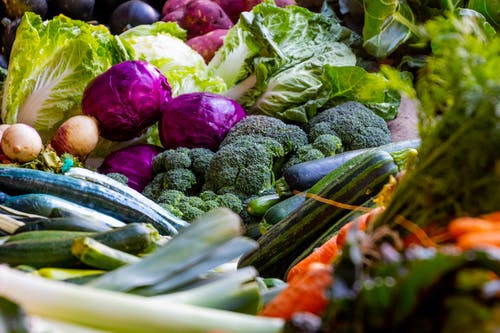Written by : Aysha Sodha
BOTANICAL PRODIGIES: VEGETATION ABUNDANT IN PROTEINOUS ESSENCE
Protein, the essential architect of corporeal structure, orchestrates crucial processes in human life. Beyond promoting development, tissue regeneration, and immune system fortification, it delicately controls hormonal dynamics, enzyme activity, and penetrates practically every physiological function.
Constituting around 20% of body mass, protein takes center stage in muscle mass synthesis. While animal derivatives often outclass their vegetable equivalents in protein density, vegetables provide a praiseworthy alternative thanks to their reduced fat content and richer profiles of vitamins, minerals, and antioxidants. These botanical miracles demand participation in everyday nutritional practices. Let’s go into the verdant land of high-protein veggies.
 |
| Vegetables that contain a lot of protein |
Verdant Protein Reservoirs
Watercress
Distinguished as the pinnacle of green vitality, a single vessel of watercress encapsulates 0.8 g of protein, simultaneously completing the entirety of daily vitamin K requisites. Beyond this, watercress bestows a treasure trove of B vitamins, vitamins C, E, and A, beta-carotene, and an assortment of minerals—calcium, magnesium, potassium, iron, zinc, and manganese.
The plaudits bestowed upon watercress extend to its anti-cancer characteristics, anti-aging properties, digestive invigoration, cleansing capabilities, circulatory fortification, and rheumatism alleviation.
Lucerne Sprouts
A unique cup of alfalfa sprouts supplies roughly 1.3 g of protein, accompanied with endowments of folic acid, vitamins K and C, B vitamins, magnesium, phosphorus, zinc, copper, and iron. The plentiful availability of omega-3 and omega-6 fatty acids presents alfalfa as a vital asset. Its qualities extend to an anti-inflammatory disposition, bloating avoidance, ulcer repair, and cholesterol reduction.
Cabbage
Kindred to Brussels sprouts, cauliflower, and broccoli, cabbage appears as a protein reservoir, its content dependant on different species. White cabbage, with 1.28g per 100g, coincides with savoy cabbage’s 2g and red cabbage’s 1.43g. Augmenting its attractiveness, cabbage supplies ample nutritional fiber, cleaning qualities, and cardiovascular benefits.
Spinach
A single glass of spinach delivers 1 g of protein, concurrently satiating 181% of the daily vitamin K necessity. The antioxidant effectiveness of spinach combats aging, recommends itself to people battling with hypertension, and, thanks to its low-calorie composition, obtains approbation in weight reduction objectives.
Pak Choi (Chinese Cabbage)
Dubbed Chinese cabbage, a single cup of Pak Choi encapsulates 1g of protein, joined by folic acid, calcium, potassium, magnesium, iron, and vitamins A, C, and K. Esteemed for its anti-cancer capabilities, weight management assistance, anti-inflammatory characteristics, and blood pressure control, Chinese cabbage appears as a holistic health ally.
Asparagus
Approximately 135g of asparagus culminates in 2.9g of protein, matched by a cornucopia of B vitamins, folic acid, copper, magnesium, phosphorus, manganese, and vitamins A and K. Asparagus, a defender of heart health, controls blood pressure, decreases cholesterol levels, encourages renal efficiency, and preserves ocular well-being.
Broccoli
The moderate 90g of broccoli comprises 2.6g of protein. Boasting anti-cancer properties, stress-mitigating benefits, cardiovascular care, anemia prevention, joint fortification, and blood sugar level management, broccoli stands as a stalwart in the vegetable pantheon.
Brussels Sprouts
A cup of Brussels sprouts offers 3 g of protein and 3.3 g of fiber. Rich in folic acid, manganese, magnesium, potassium, iron, calcium, and vitamins K, C, A, and B6, Brussels sprouts excel in blood regulation and cardiovascular improvement. With a low glycemic index, it finds popularity among diabetics (raw-15, cooked-20). Regular ingestion shows beneficial in osteoporosis prevention and matches neatly with weight reduction goals.
Cauliflower
100g of cauliflower bestows roughly 2g of protein and a measly 25 calories. A treasure trove of vitamins C and K, plus minerals such as potassium, manganese, magnesium, phosphorus, calcium, and iron, cauliflower has isothiocyanin antioxidants (sulforaphane), endowing it with anti-cancer properties. Advocated for diabetics (glycemic index: 15), people grappling with rheumatism, and those combating with ulcers, cauliflower extends its effect to kidney fortification, circulatory health, and mental function improvement via choline content.
